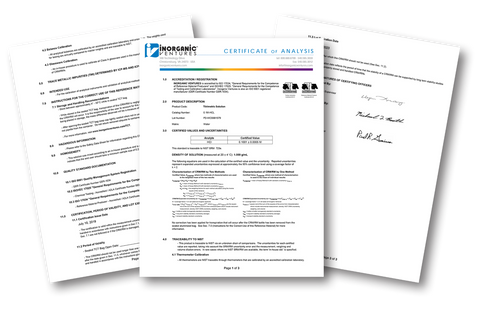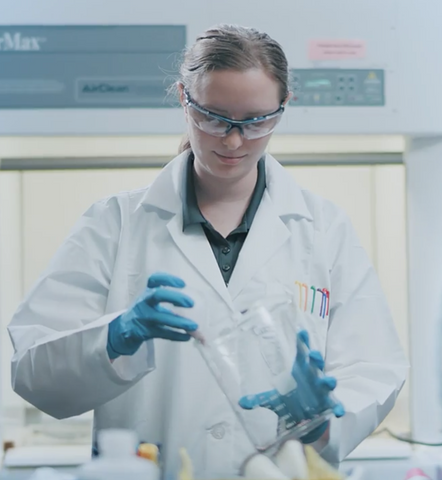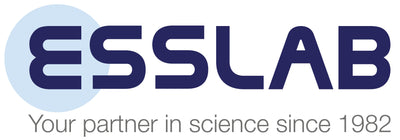Tired of the limitations associated with purchasing standard reference materials through stock catalogs? It can be an enormous time sink; scrolling through seemingly endless product pages, each with different concentrations and matrices, without any guarantee that you will find the best analytical standard for the task at hand.

Many chemists often skip the arduous process altogether, resorting to custom mixing their own analytical standards in house. However, there are pitfalls to this method too. Including extra hassle and no small amount of risk.
Fortunately, there is a better solution. Custom certified reference materials (CRMs) from Inorganic Ventures represent an easier, faster way to secure the right analytical standard reference material for your specific use case.
We always encourage our clients to share the burden of securing calibration standards. Allow us to shoulder the weight of manufacturing custom analytical standards based on your unique needs. This mitigates the time inefficiencies associated with off-the-shelf products, as well as the risk of blending analytical standards yourself in the lab.
Not convinced that custom CRMs are superior to analytical standards mixed in-house? Here are six reasons you should trust us to develop calibration solutions for your workflow, rather than blending them yourself.
1. Mixing analytical standards is expensive
Blending single-element analytical standards into a working solution demands both resources and time. Consider the administrative, equipment, and labor costs linked to stocking and measuring re-order points per solution. This rapidly adds up to a significant ongoing investment.
Using custom analytical standard from Inorganic Ventures ensures that you only pay for what you need. This makes inventory management much easier. Our CRMs are ready for immediate use without further preparation and you can easily dilute each standard straight from the bottle.
2. Documenting analytical standards is a pain
You always bear the burden of proof when mixing your own calibration standards. Labs that are held to the most stringent testing parameters must be constantly diligent that every standard is produced to the highest of standards. This requires an enormous degree of confidence and organization. It also requires nerves of steel if you are ever faced with an audit.

When using a custom from Inorganic Ventures, all regulatory documentation and associated paperwork (CoA and SDS) is taken care of for you, and is readily available for auditing. Our standards are manufactured and certified under our ISO 17025 and ISO 17034 Scopes.
3. Human error is a real risk
To err is human, and even experienced chemists make mistakes. You are bound to second guess the validity of your results at some point when mixing analytical standards in house. Unfortunately, there is no room for error in the analytical industry. Perhaps you are experiencing compatibility issues when mixing your calibration standards because of incorrect additions or an improper matrix – or a whole host of other common issues.
Common human errors that may compromise the integrity of your DIY working standard include:
- Incorrect calculations or dilutions.
- Accidental use of the wrong standard, leading to the wrong concentration.
- Improper matrix usage which may cause interferences.
- An unstable matrix resulting from poor knowledge of necessary stabilizers.
- Recording the wrong weight (if preparing gravimetrically).

4. Storing analytical standards can pose further problems
Transpiration can gradually increase the concentration of your analytical standards over time. Unfortunately, there is no way to combat this phenomenon when mixing your own working standards in-house, as it occurs due to water vapor ingress into the mixture, either through container walls or through the opening.
At Inorganic Ventures, we have developed a proprietary packaging system that effectively mitigates transpiration to preserve the integrity of our CRMs over longer periods. Transpiration Control Technology (TCT) prevents transpiration from the bottle using an equilibrium inside the heat-sealed container. Analytical standards packaged in this manner maintain their integrity for up to four years from the date of manufacture. Products may be stored for up to three years in the TCT bag, then up to another year following removal. The time and cost savings associated with constant inventory restocking are effectively eliminated, significantly easing your storage concerns.

5. Your lab could be introducing contaminants
Analytical standards must be packaged in ultra-clean bottles, and sterilized laboratory equipment and clean starter materials are used to prepare the CRM. It is possible to replicate these strict cleanliness conditions in your own lab, but this is another example of the labor intensity and cost requirements of mixing calibration standards yourself.
The Inorganic Ventures team has carried out extensive leaching studies to investigate contaminant levels in all materials used to manufacture our CRMs. We source the cleanest components (starting materials, weigh boats, pipets, bottles, etc.) and properly leach them all to achieve the cleanest final analytical standard possible. We also have a dedicated clean room equipped with a HEPA filtration system alongside ultra-high purity acids for manufacturing. This guarantees that no environmental contaminants are introduced at any point.
6. There is nowhere to turn when faced with unexpected results
It can be extremely difficult to narrow down the source of mistakes if your results go awry. Simple mistakes like going over volume will require boiling of the concentrate, typically in glass, which may just introduce more contaminants. The only solution therein is to start all over again.

The ESSLAB technical support team is ready to assist with sample preparation and is well-versed in troubleshooting to help with any issues that crop up during testing. Rely on our expertise if you run into any unexpected issues.

Leave a comment